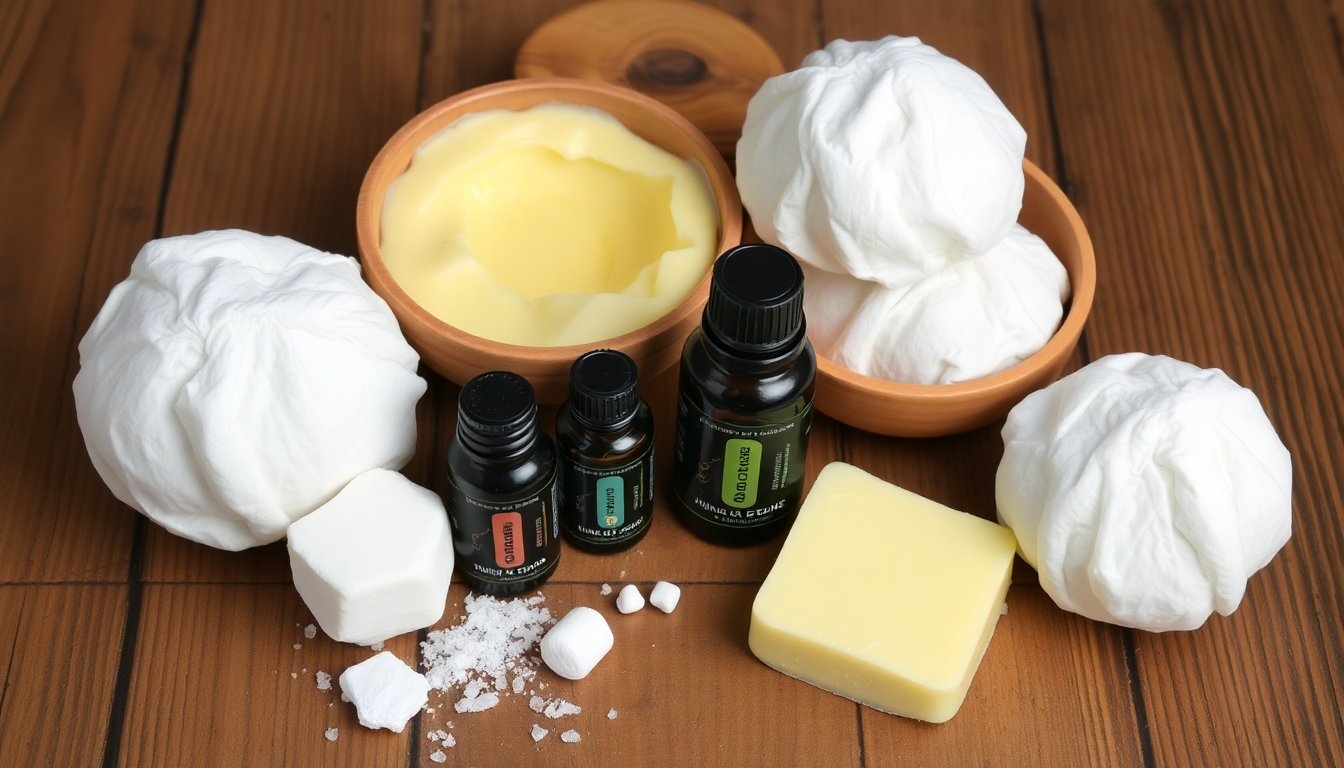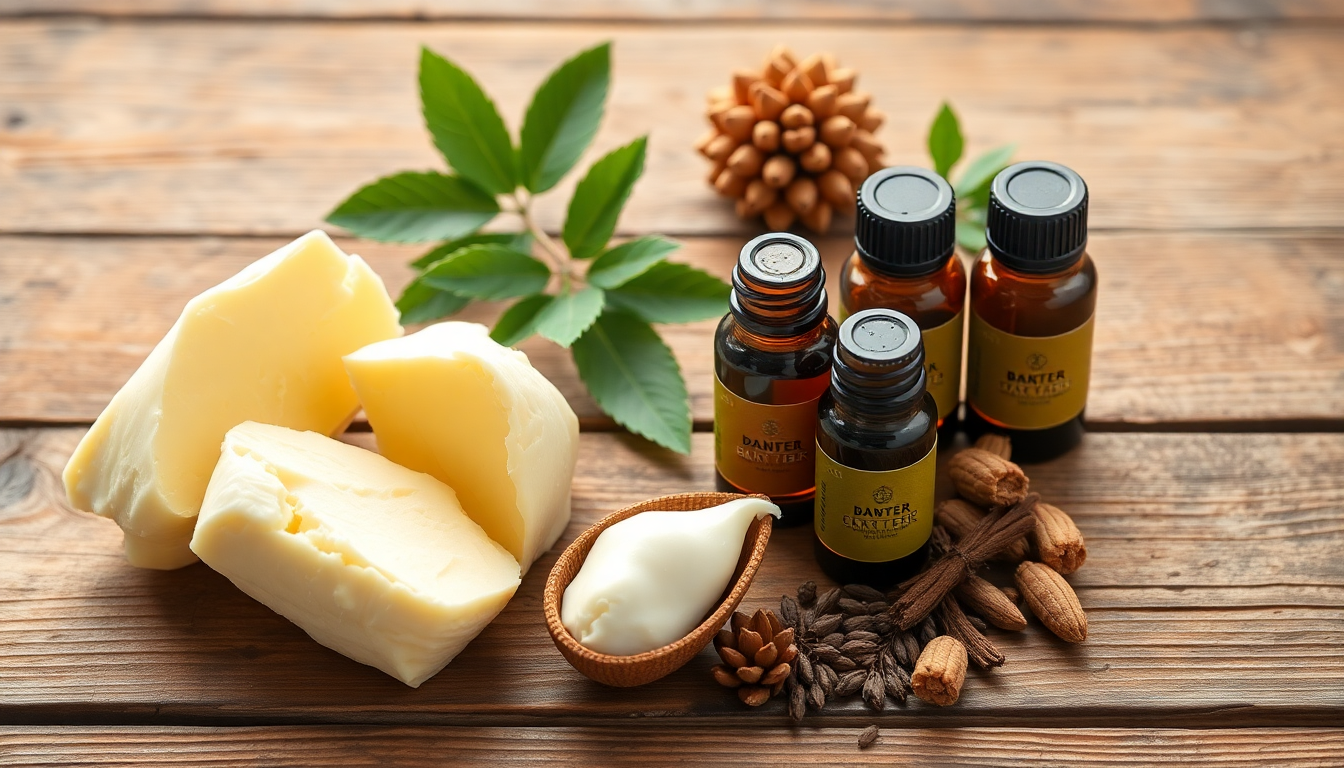Introduction
In the ever-evolving world of skincare, 2025 brings fresh insights and innovative products designed to help both men and women achieve their best skin yet. With a focus on effective ingredients and sustainable practices, this comprehensive guide will explore effective exfoliation techniques, the remarkable benefits of shea butter, and the essential oils that can transform your skincare routine. Let's dive into the ultimate skincare routine that caters to your skin's needs and enhances your natural beauty.
Understanding Your Skin Type
Before we delve into specific techniques and products, it's essential to understand your skin type. Knowing your skin's unique needs will help you choose the right products and techniques for optimal results. Here’s a quick overview of the different skin types:
- Oily Skin: Characterized by excess sebum production, this type often leads to enlarged pores and acne. Look for lightweight, non-comedogenic products.
- Dry Skin: Often feels tight and rough, dry skin lacks moisture and may flake. Opt for rich, hydrating products that provide deep moisture.
- Combination Skin: This type features both oily and dry patches, typically with an oily T-zone and dry cheeks. Use a balanced routine to address both areas.
- Sensitive Skin: Prone to redness, irritation, and allergic reactions, sensitive skin requires gentle, fragrance-free products.
- Normal Skin: This type has a balanced moisture level and is less prone to breakouts. A simple routine will suffice.
Exfoliation Techniques for Glowing Skin
Exfoliation is a crucial step in any skincare routine as it helps remove dead skin cells, unclogs pores, and promotes cell turnover. Here are some of the most effective exfoliation techniques for 2025:
- Physical Exfoliation: This method involves using scrubs or tools like brushes to manually slough off dead skin. Look for gentle scrubs with natural ingredients such as sugar or oatmeal to avoid irritation. Use this technique 1-2 times a week for best results.
- Chemical Exfoliation: Products containing alpha hydroxy acids (AHAs) like glycolic acid and beta hydroxy acids (BHAs) such as salicylic acid can effectively dissolve dead skin cells. Incorporate these into your routine for smoother skin, but be cautious not to over-exfoliate.
- Enzyme Exfoliation: Derived from fruits like papaya and pineapple, enzyme exfoliants provide a gentle alternative for sensitive skin. They break down dead skin without harsh scrubbing and can be used more frequently than physical exfoliants.
- Exfoliating Masks: Clay masks or peel-off masks that contain exfoliating ingredients can be a great addition to your routine. They provide a deeper cleanse and help draw out impurities.
The Power of Shea Butter
Shea butter remains a superstar ingredient in skincare, offering a plethora of benefits for all skin types. Here’s why you should include it in your routine:
- Moisturizing: Shea butter is an excellent natural moisturizer, rich in fatty acids that deeply hydrate the skin. It creates a barrier that locks in moisture, making it ideal for dry or dehydrated skin.
- Anti-Inflammatory Properties: It soothes irritated skin, making it perfect for those with conditions like eczema or psoriasis. Its anti-inflammatory properties can help reduce redness and swelling.
- Rich in Antioxidants: Packed with vitamins A and E, shea butter helps protect the skin from free radical damage and environmental stressors. It promotes skin healing and regeneration.
- Improves Skin Elasticity: Regular use of shea butter can enhance skin elasticity, reducing the appearance of fine lines and wrinkles. Its nourishing properties support skin health as you age.
- Versatile Use: Shea butter can be used on the face, body, and even hair. Its versatility makes it a must-have in your skincare arsenal, whether as a moisturizer or a treatment for dry patches.
Essential Oils: Nature’s Skincare Elixirs
Essential oils are potent additions to any skincare routine, offering various benefits. Here are some essential oils to consider in 2025:
- Tea Tree Oil: Known for its antibacterial properties, tea tree oil is excellent for acne-prone skin. It helps reduce inflammation and prevent future breakouts.
- Lavender Oil: This calming oil not only smells delightful but also promotes relaxation and helps reduce inflammation. It can be beneficial for those with sensitive or irritated skin.
- Rosehip Oil: Rich in vitamins and antioxidants, rosehip oil aids in skin regeneration and improves overall texture. It’s particularly effective for reducing the appearance of scars and hyperpigmentation.
- Frankincense Oil: Often used for its anti-aging properties, frankincense oil can help reduce the appearance of scars and blemishes while promoting a youthful glow.
- Peppermint Oil: This invigorating oil can help stimulate circulation in the skin and provide a refreshing sensation, making it great for morning routines.
How to Safely Use Essential Oils
While essential oils boast numerous benefits, it's important to use them safely:
- Always dilute: Essential oils are potent and should be diluted with a carrier oil, such as jojoba or coconut oil, before applying to the skin.
- Patch test: Conduct a patch test before using a new essential oil to check for any allergic reactions or irritation.
- Consult a professional: If you have sensitive skin or specific skin conditions, consult a dermatologist before incorporating essential oils into your routine.
Putting It All Together: Your Ultimate Skincare Routine
To create the ultimate skincare routine that incorporates exfoliation, shea butter, and essential oils, follow these steps:
- Cleanse: Start with a gentle cleanser to remove impurities. Choose a product that matches your skin type for optimal results.
- Exfoliate: Choose your preferred exfoliation technique and apply it 1-3 times a week. Adjust frequency based on your skin's tolerance.
- Tone: Use a toner to balance your skin's pH levels. Look for alcohol-free toners that hydrate and soothe.
- Moisturize: Apply shea butter to lock in moisture and nourish your skin. Use it in the morning and evening for best results.
- Serum: Incorporate essential oils mixed with a carrier oil to target specific skin concerns. Use a few drops and massage gently into the skin.
- Sunscreen: Finish with a broad-spectrum sunscreen during the day to protect against UV damage. Sunscreen is essential for preventing premature aging and skin cancer.
- Night Treatment: At night, consider using a heavier moisturizer or treatment oil to deeply hydrate and repair your skin while you sleep.
Special Considerations for Different Skin Types
Tailoring your skincare routine based on your skin type is crucial for achieving the best results. Here are some specific considerations:
- Oily Skin: Focus on exfoliating regularly with BHAs and use lightweight moisturizers. Avoid heavy oils that can clog pores.
- Dry Skin: Incorporate richer products and increase the frequency of moisturizing. Look for hydrating ingredients like hyaluronic acid.
- Combination Skin: Use different products for different areas. Consider multi-masking to address specific concerns.
- Sensitive Skin: Stick to fragrance-free, gentle products and avoid harsh exfoliants. Always perform patch tests.
Conclusion
As we embrace the advancements in skincare in 2025, remember that consistency is key. By integrating exfoliation techniques, the nourishing properties of shea butter, and the powerful benefits of essential oils, you can achieve healthy, glowing skin. Tailor your routine to your skin's unique needs, and explore the world of natural ingredients to find what works best for you. Enjoy the journey to radiant skin, and don't forget to celebrate the progress along the way!




اترك تعليقًا
This site is protected by hCaptcha and the hCaptcha Privacy Policy and Terms of Service apply.